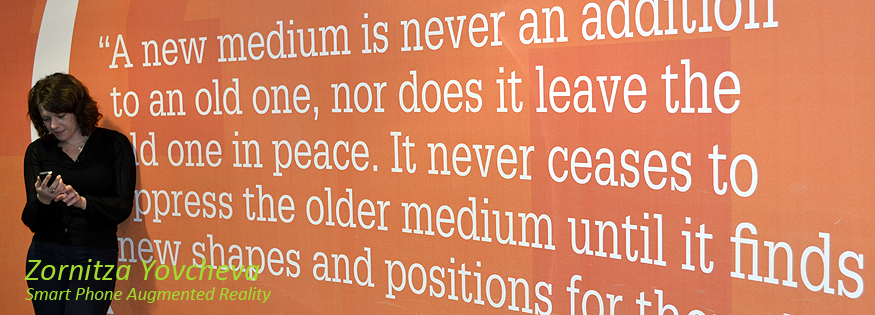
Zornitza Yovcheva is a Graduate Researcher at the John Kent Institute in Tourism at Bournemouth University. Her research project, supervised by Professor Dimitrios Buhalis and Dr. Christos Gatzidis, looks at the influence of context of use for smartphone AR applications when used by tourists in unfamiliar environments.
Recent advance in mobile computing and sensor technologies have given birth to novel context-aware mobile applications, which can determine global position and information pertinent to the user’s profile to filter through available information. One significant feature of such applications is the ability to adapt to any situation in which they are used in order to fit user needs better.
Technologically advanced smartphones allow the use of Augmented Reality (AR) and introduced this technology to the mass market. In a typical AR smartphone application, the user of a smartphone can see virtual information overlaid on top of real-world physical objects (e.g. buildings or monuments) through the display of the smartphone. The problem at present is that such applications deliver either too much information or irrelevant content to their mobile users. Apart from learning and exploration, AR has a huge potential to reinforce the impressions of tourists from a place, increasing the feeling of a more complete experience to make a trip altogether exceptional. Key to the realization of this vision, however, is an effective, user-driven synergy of context-awareness and augmented reality.
Looking at the development of current context-aware AR systems, there are a number of research questions that emerge. These relate both to context, information filtering, visualization and overall design of AR-enabled tourism applications. This research will look at the influence of context of use for smartphone AR applications when used by tourists in unfamiliar environments. The ultimate goal is to come up with a conceptual framework for design of adaptive (context-aware) smartphone AR applications for tourists. Understanding the scope of the technology, we hope, will vastly improve the smartphone user experience.